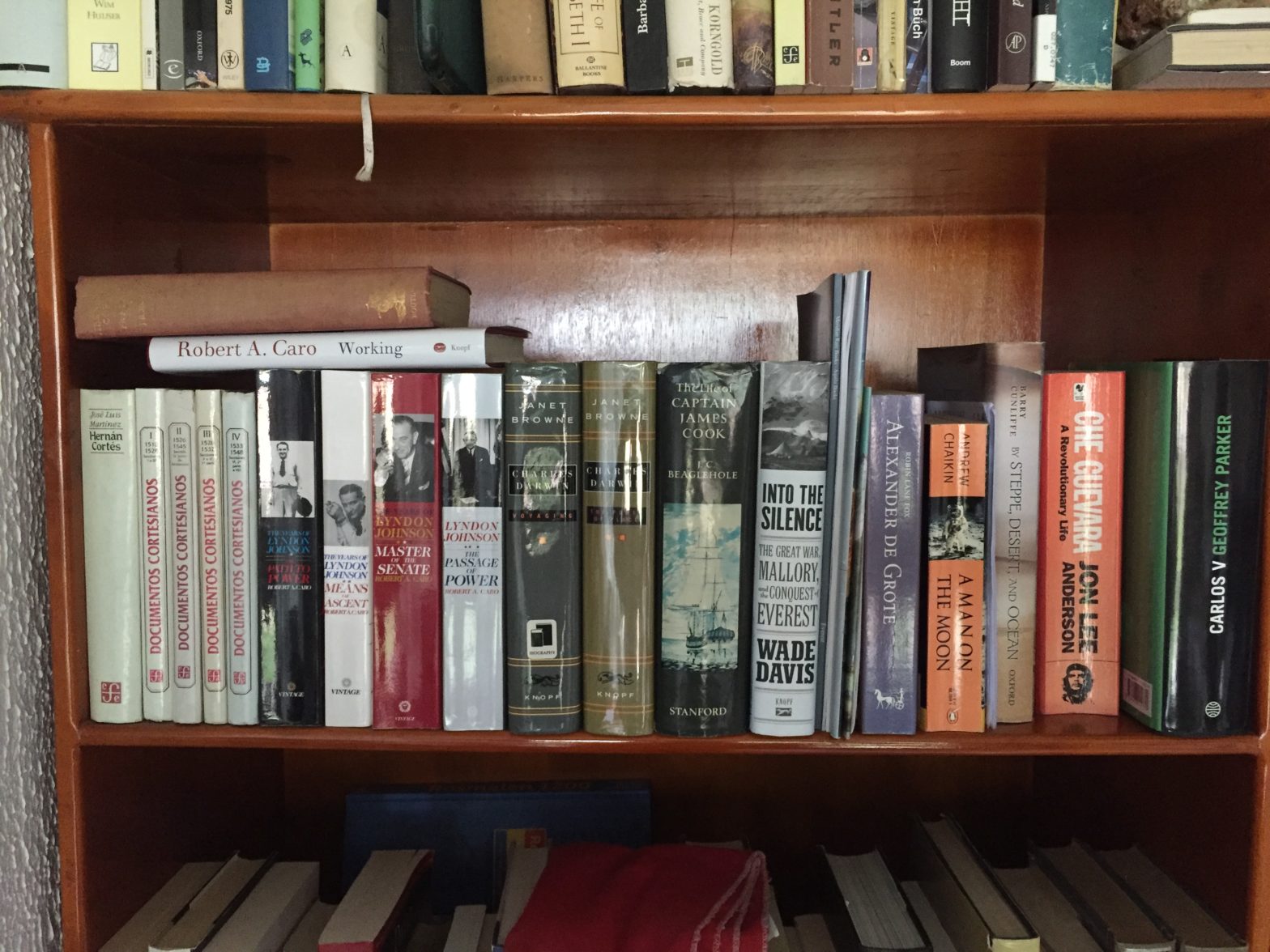Let’s start with my personal best with a respective short book review. All books are worth 5 stars.
For a total overview of the books I read, go to the following link on Goodreads.
On my Home page I introduce you to the Armchair-travel of reading. On the About me page I introduce you shortly to the books I have written so far.
Book review, #1:
Martínez, José Luis, Hernán Cortés, 1990, UNAM/FCE, México DF. ISBN 968 16 3330 X
5 stars
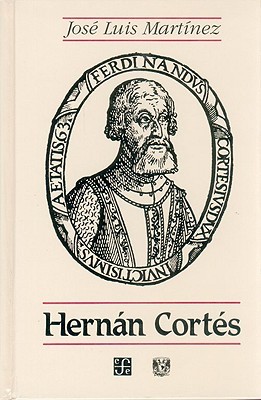
The best book I ever read so far. A more than complete book about the famous Spanish conquerer of Mexico, Hernán Cortés (1485-1547). His life, from start to finish.
Cortés was born and died in Spain. In between though he had an adventurous life, which played itself out mostly in the Americas. First on the island of Cuba and later on in Mexico, which he conquered in the name of his sovereign, Charles V & his God.
All this doesn’t mean at all that Cortés is a personal hero of mine. Not at all, but what a story! Conquering beautiful Mexico. As I told about myself in the Introduction to this blog, I am fascinated by Mexico. Mexico, then and now.
Cortés’ main goal was the magical capital of the Aztec Empire, Tenochtitlán. Seat of the Aztec leader, Moctezuma, who was one of the first victims of the Spanish invasion. Cortés had only a few hundred foot soldiers at his disposal, plus a few horses. However, he knew how to build alliances with local enemies of the Aztecs to get his job done. A brutal, but amazing story really.
Nowadays, Cortés is a highly controversial figure in Mexico, but – admire him or not – he is an inseparable part of her history. A symbolical father of everything Spanish in Mexico, but at a high cost of Mexico’s native origins.
This book is written by a famous Mexican historian. Unfortunately, so far only available in Spanish. But it certainly deserves an English translation! The original edition comes with 4 extra tomes, full of notes, documents letters, rapports, .. talking about completeness. Love it!
And don’t worry. The rest of my top 10 are all available in English. In other words, continue on!
Click on cover below, if interested.
(“Paid link”)

Anexos to the book:

Abbreviated version:

.
Book review, #2:
Caro, Robert A., The Years of Lyndon Johnson, Alfred A. Knopf (NY)
All volumes, 5 stars
Vol I: The path to power, 1982, ISBN 0 679 72945 3
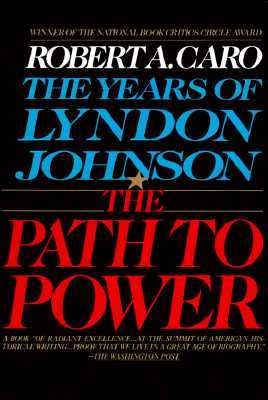
Vol. II: Means of ascent, 1990, ISBN 0 679 73371 X
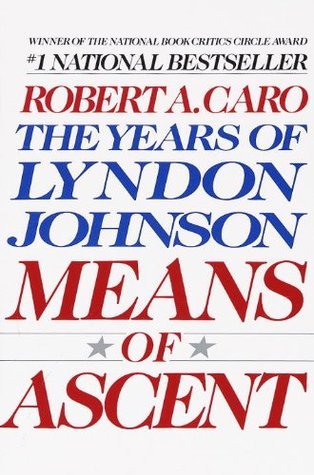
Vol. III: Master of the senate, 2003, ISBN 0 394 72095 4
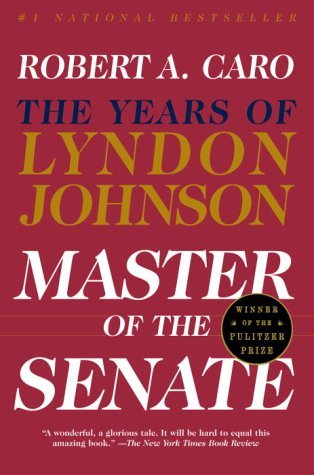
Vol. IV: The passage of power, 2013, ISBN 978 0 375 71325 5
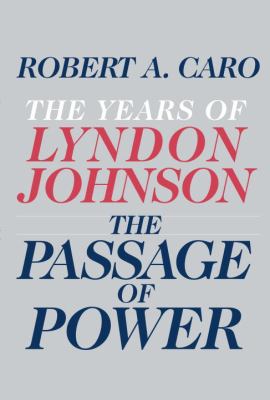
… and then! This life’s work of Robert A. Caro. A bible on the life of Lyndon B. Johnson.
After reading several biographies about the most popular presidents of the USA, like Lincoln & Kennedy, I decided it was time for one of the “bad” guys. And so, Lyndon B. Johnson was my first choice. Somehow, Johnson for many has left a negative image in the world. Well, that’s until you read this biography.
Thousands & thousands of pages on Johnson changes your mind. He was foremost a politician pur sang. From a young age he knew how to play the game of politics. In a good, as well as in a bad sense. In other words, just as the game of politics is.
It’s an amazing story to learn how this poor boy from the Texas’ Hill Country climbed the political ladder. A journey that leads you first through the local political institutions, before you end up in Washington D.C..
It’s maybe not the man himself who fascinates. It’s above all the way he handled politics. On a national level, first in the House of Representatives and later on in the Senate. In many ways, the highlights of his political career.
Dallas
However, there was still a higher step to take. After John F. Kennedy got killed in Dallas, Johnson all of a sudden became president of the USA.
That’s where the first 4 volumes of Caro end, and the 5th will continue. Still in the pen of the author. This one – the last one? – will handle Johnson’s years as president. His presidency was an unlucky one. He not only had to follow up on the popularity of the Kennedy’s, combat racism on a political level, but also handle the ugliest war in the history of his country. The war in Vietnam.
To be honest I can’t wait for the next volume to come out. A must read for the history buff. Only available in English so far. Understandably, knowing the total of pages.
Click on cover below, if interested.
(“Paid link”)




Complete Hardcover edition:

.
Book review, #3:
Browne, Janet, Charles Darwin, a biography, Alfred A. Knopf (NY)
Both volumes, 5 stars
Vol. I: Voyaging, 1995, ISBN 978 0 394 57942 9
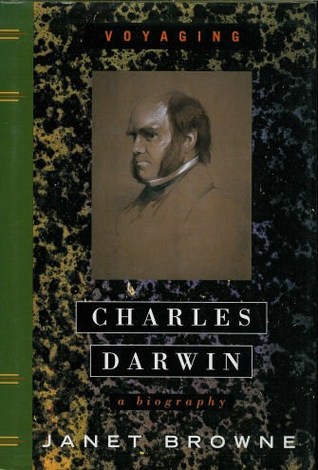
Vol. II: The power of place, 2002, ISBN 978 0 679 42932 8
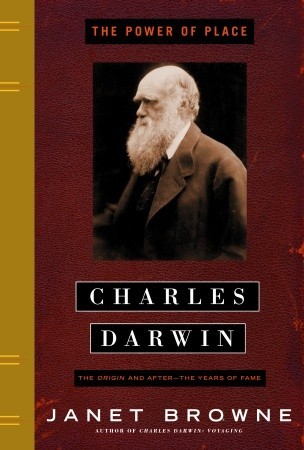
A beautiful two volume set about one of history’s greatest scientists. A revolutionary through his work on evolution.
The first book deals with Darwin’s younger years and mainly treats his around the world trip on the Beagle. A beautiful journey and great adventure. But also, a painful one for the young Darwin, due to the fact that he got seasick every time he climbed on board.
The second volume is dedicated to the scientific work that followed the journey around the world. The building of a revolutionary theory about life, … our life!
Darwin’s had to overcome many obstacles to get his “wild” ideas out. Not only scientifically, but also personal. Beforehand he knew that not everybody was prepared to get it’s head around such scientific and for that matter un-religious conclusions. Man, descended from apes?
For that reason, Darwin hesitated for many years to launch his theories. Until he couldn’t wait any longer. That moment came when he received a letter from a British colleague, who was doing research in Indonesia. In that famous letter this colleague, Alfred Russel Wallace, notified Darwin of his latest findings. Conclusions that were very similar to the ideas Darwin had built up during decades concerning evolution.
The rest is history! History, as written down beautifully by Janet Browne – who even had time to answer my letter after finishing this marvelous book. Besides English, available only in Spanish & Italian so far.
Click on cover below, if interested.
(“Paid link”)


.
Book review, #4:
Beaglehole, J.C., The life of Captain James Cook, 1974, Stanford University Press, Stanford, CA. (org. 1974, A & C. Black Ltd., Londen). ISBN 0 8047 0848 7
5 stars
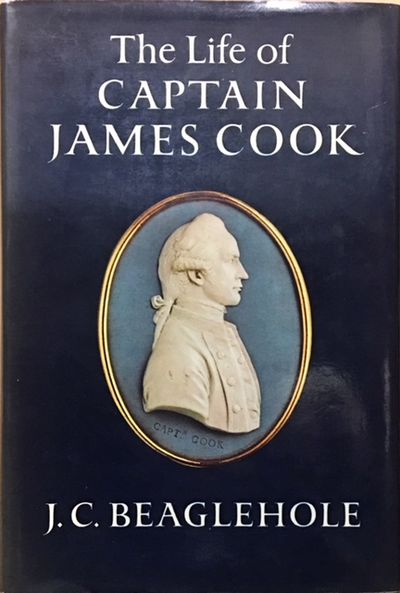
This biography is about another famous world traveller. A man born to conquer the world, the world’s biggest oceans actually.
For me and probably for many other people, James Cook was en is one of the most important discoverers the world has ever seen. Born a sea lion, Cook rounded the world several times, leaving his mark in dozens of places. Above all active in the South seas. In Australia, New Zealand & the South Pacific, where he surprisingly lost his life on one of the Hawaiian islands. An unfortunate death.
The book by John C. Beaglehole (New Zealand) was written many years ago, but despite that it still is the best and most complete work on Captain James Cook and his voyages. Only in English.
Click on cover below, if interested.
(“Paid link”)

.
Book review, #5:
Davis, Wade, Into the silence: The Great War, Mallory, and the conquest of Everest, 2011, Alfred A. Knopf (NY/ Toronto). ISBN 978 0 676 97919 0
5 stars
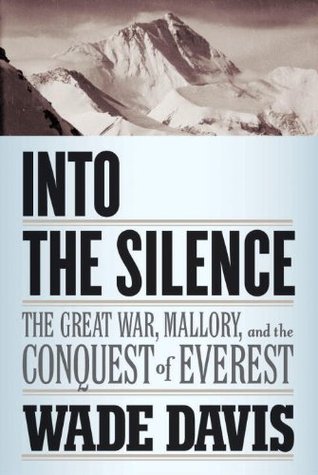
Another great adventure was the discovery of the highest peak on Earth and the early attempts by the British to conquer its summit.
After the disastrous First World War, Great Britain organized a serie of expeditions to the Indian Himalayas. Although from the start there was the wish to get to the top of Mount Everest, the first expeditions only resulted in the discovery of the best route to get there.
Finally ending this serie of expeditions with the summit attempt (1924) of George Mallory and Sandy Irvine, that ended in disaster. Resulting in a never ending discussion if the men died on their way up to the summit, or died coming down after conquering it.
It’s most probably the first scenario, but somehow these kind of stories never die. Notwithstanding the fact that nowadays most people take for granted that the New Zealander Edmund Hillary was the first to conquer the summit in 1953 – together with his Nepalese sherpa Tenzing Norgay.
It was only recently (1999) that the body of Mallory was found on the slopes of the Everest by the famous German mountain climber Conrad Anker. The mountain that was supposed to be Mallory’s and Mallory’s alone.
This book by the Colombian-Canadian author Wade Davis takes you on a wonderful journey up the slopes of Mount Everest. Translated in different languages, like Spanish, French & Dutch.
Click on cover below, if interested.
(“Paid link”)
Choose between Hardcover or Paperback version:


.
Book review, #6:
Lane Fox, Robin, Alexander the Great, 1973, Allen Lane. ISBN 071390500X
5 stars
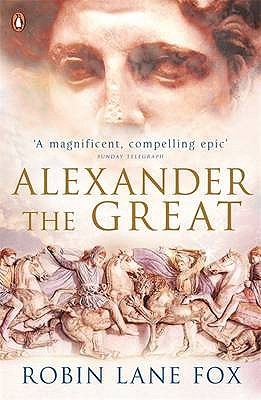
I read this book in a Dutch translation many years ago. A complete work on Alexander’s short, but adventurous life.
Alexander the Great (356-323 B.C.) was born in the Greek kingdom of Macedonia. Although his ancestors already played an important role within the Classical World, it was Alexander that was set out for greatness. Greatness that wasn’t only set in his DNA, but also transmitted to him through his education. One of his professors was the famous Greek philosopher Aristotle.
At a young age he left Macedonia. Not merely to know explore, but to conquer. First of all, the areas surrounding his homecountry. After that he crossed over to the Middle East and Egypt, which he added to his fast growing empire.
All the time though, Alexander considered the Persians his main enemy. He had to combat the strong Persians, led by Darius III, several times before incorporating their empire. After those famous battles, Alexander couldn’t and wouldn’t stop anymore and continued on to India, which he also conquered, but only partially.
Early death
This book provides you with many details of Alexander’s life. Especially the many battles fought, but also personal aspects of his life. His many friends and foes, lovers and haters, girlfriends and boyfriends. A short, but eventful life! Alexander died just before his 33rd birthday. A life lived in one of world’s most beautiful regions.
The book also briefly describes how this great empire fell apart after his untimely death in Babylon, Persia. Alexander was probably murdered. Poisoned by one of the people in his inner circle. For many dying a hero, for others a villain?
Still, his name and deeds still live on, after almost 2500 years. After reading this book of Lane Fox, you’ll know why. Translated in different languages: Spanish, Italian, German and Dutch.
Click on cover below, if interested.
(“Paid link”)

.
Book review, #7:
Chaikin, Andrew, A man on the Moon. The voyages of the Apollo astronauts, 1998 (oorspr. 1994), Penguin Books, NY. ISBN 0 14 027201 1
5 stars
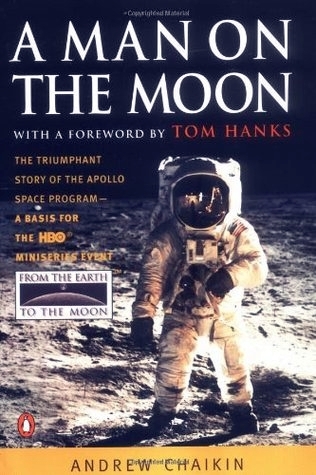
For me, going to the moon still is the greatest scientific stunt mankind has ever performed. Chaikin tells the story from the beginning. Cheered on by the Cold War with the Soviet Union, who initially were the first ones to send a man into space and around the Earth. As well as supported by the US government, led by the presidents John F. Kennedy, Lyndon B. Johnson and Richard Nixon.
Chaikin described the whole space program from start to finish. From Mercury through Gemini to Apollo. Through failures and succeses, life & death. It’s almost unimaginable that this all happened so many years ago, more than 50 years ago.
An amazing race, and an amazing book. Takes you to the moon and back. As far as I know, only translated in Greek besides English.
Click on cover below, if interested.
(“Paid link”)

.
Book review, #8:
Cunliffe, Barry, By Steppe, Desert, and Ocean – The birth of Eurasia, 2015, Oxford University Press, Oxford. ISBN 978 0 19 968917 0
5 stars
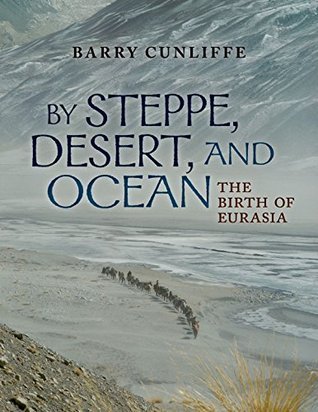
A fascinating read about a region in the world, that generally doesn’t receive that much attention. The Asian Steppes and their role in history, our Western history included.
The archeologist and academic professor Sir Barrington Windsor Cunliffe (Oxford), fills a historical gap with this beautifully written account of the long history of the Asian central regions.
At the same time, linking this for most people unknown region with developments in the Far East (China), the Near East & Europe. Different worlds not only connected to each other through the famous Silk route or the Indian Ocean, but also by the so called Great Steppe corridor. A heaven for horses, as you will learn, reading this book.
When there was ever a story that was completely new to me, it was this one. A fascinating journey, in one of the most beautiful areas of the world. Translated in German.
Click on cover below, if interested.
(“Paid link”)

.
Book review, #9:
Anderson, Jon Lee, Che Guevara – A revolutionary life, 1997, Bantam Books (Londen / New York / Toronto / Sydney / Auckland) . ISBN 0 553 40664 7
5 stars
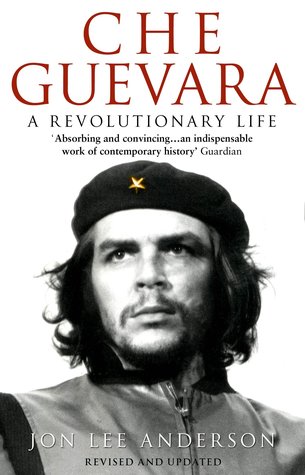
El Che. For many a symbol, a hero, and a martyr. A dreamer, an idealist. While others find him a rebel, a criminal, or some even a murderer.
What I most like about this book of the North American writer Jon Lee Anderson is the objective picture he gives of Che Guevara. At least, for me.. he does.
After his early death in Bolivia, Che became a symbol more than a real person. So, it’s very hard to get an objective view of him through the many books that are written about him. Anderson has written a professional biography. Also placing Che in the right time frame. Because it was another world in which he grew up. Another context.
We get to know were Ernesto Guevara came from. First of all, his youth in Argentina. Followed by, the adventurous travels he made through South America. After that, his first confrontations with injustice and poverty. Finally, the learning school in Guatemala. And also, Che’s first meeting with Fidel Castro in Mexico.
Times were different then and many times I asked myself – reading this book – what Che Guevara would think of the world today? Did he die in vain? Wasn’t he first of all a victim of his own idealism? For sure, he died too young.
A good, solid read about Che Guevara’s many battles in life. Translated in many languages, although not in Dutch!
Click on cover below, if interested.
(“Paid link”)

.
Book review, #10:
Parker, Geoffrey, Emperor – A new life of Charles V, 2019, Yale University Press, New Haven. ISBN 978 0 300 19652 8
5 stars
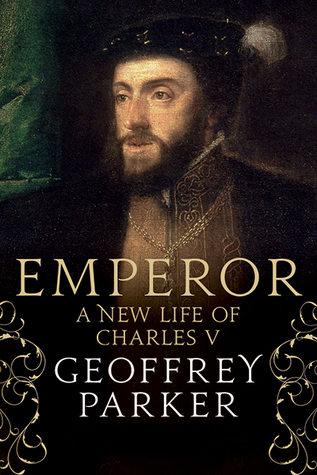
Closing my Top 10 – for now – is a book I bought during my last visit to Spain in the summer of 2019.
Spain has a long, interesting history and – as well as all other countries – there were people in its past that played a central role in forming a country.
Concerning Spain, we can first of all think about the Catholic kings, Isabella & Ferdinand. As a couple, they were important in unifying Spain. As well as, essential in reconquering the last muslim stronghold in the south, Granada. However, it was under Charles V – or Carlos I of Spain – that Spain became a world power.
Charles was born in Gent, a city in the Habsburg Netherlands at the time. His father was Philip the Handsome, son of the Holy Roman Emperor Maximilian of Habsburg. His mother, Joanna the Mad, was the daughter of Ferdinand & Isabella of Spain and also parts of the Americas. So, after his ancestors died, he inherited country after country within Europe.
At the end, governing half of it, mostly the western part of Europe. Charles didn’t visit Spain until he was 17 years old, when he was already crowned its king. However, it was Spain that would get the attention and where he eventually would die and be buried.
Golden Age
Under Charles V, Spain entered its golden age. Not only because of Charles’ rule and power within Europe. Also because of the conquest of the Americas. In the decades after Columbus “discovery” of America in 1492, the Spaniards little by little conquered the whole continent.
At the time that Charles governed Spain, gold, silver and other riches came flowing in from across the Atlantic. From New Spain mainly, nowadays Mexico, and later on also from Peru. Richnesses that first of all had to finance the many wars Charles had to fight within Europe.
As a result of the continues wars, Charles was always on the move in Europe, traveling from Spain to Italy, to the German States and the Netherlands. One of the reasons that he never crossed the Atlantic, to visit Spain’s American colonies. Well, he probably wouldn’t have visited them anyway.
A beautiful read, as complete as its thickness. Available in English and Spanish.
Click on cover below, if interested.
(“Paid link”)

For an overview of all travel posts of my blog, go to: the Home Page.
- Final message, for fellow travel writers & bloggers: TravelPayOuts is a global integrated affiliate program focused exclusively on travel offers. If it works for me, it will probably work for you too: TravelPayOuts.


